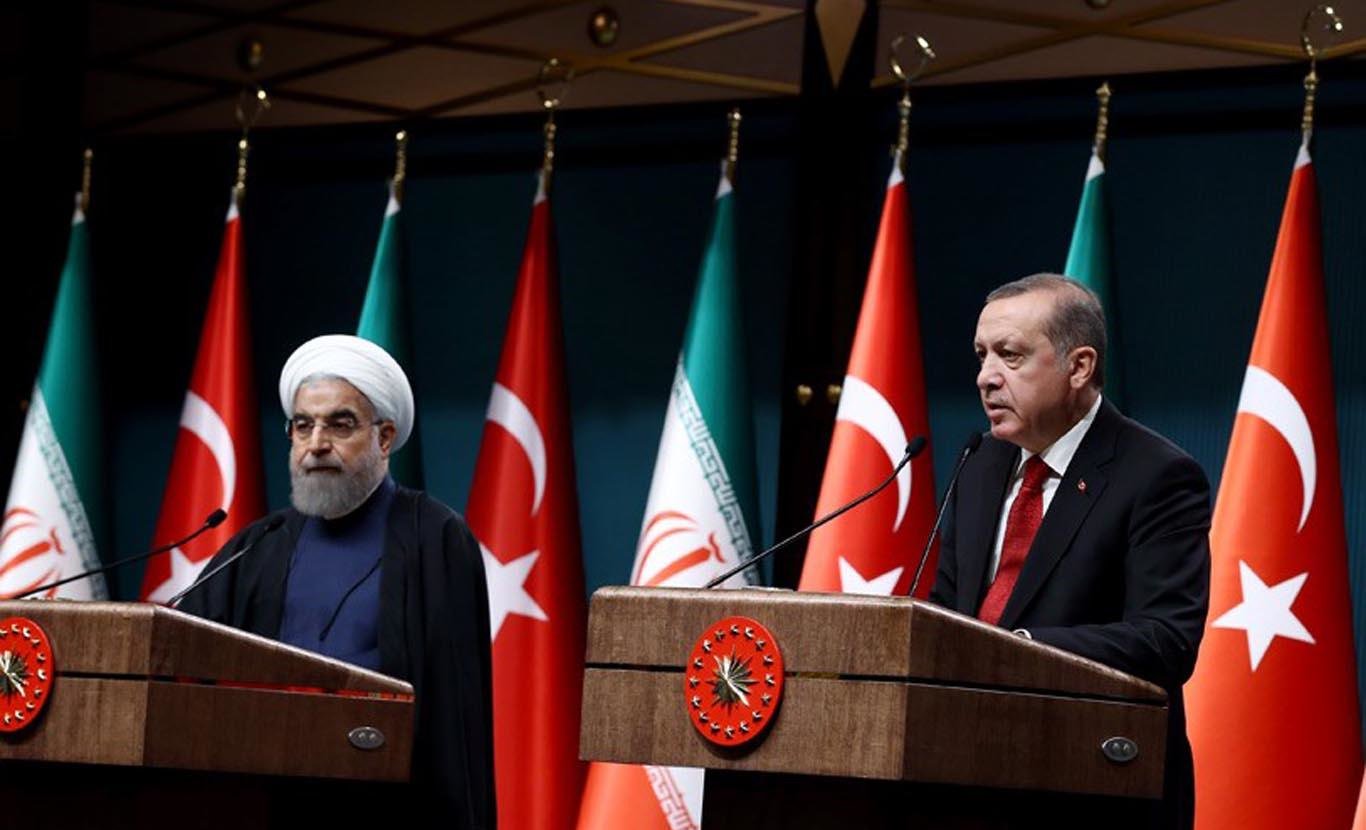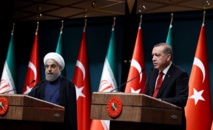"This is not over, it has only started," Erdogan said in an escalation of rhetoric, noting that the Iraqi Kurdish region is surrounded by Iran, Turkey, Syria and Iraq itself. The neighbours are concerned their own Kurdish minorities could seek to break away.
Baghdad and Ankara have imposed a ban on international flights to and from Kurdistan's airports as part of the backlash. The Kurds called the move "collective punishment." Baghdad said the flights would resume if the central government assumes control of the airports.
Erdogan was in Iran on Wednesday and both sides stressed their opposition to the referendum held last month, which was also rejected by world powers, including the United States.
“Iran and Turkey should take every possible measure against the move and the Iraqi government, too, should make decisions and take serious action,” Ayatollah Ali Khamenei, Iran’s supreme leader, was quoted as saying by state-run media, after meeting Erdogan.
Iran and Turkey are increasingly blaming Israel for the referendum, with Khamenei slamming a Kurdish state as a "new Israel," adopting rhetoric used by anti-Kurdish hardliners.
“You only have Israel behind you. You have taken France’s former foreign minister on your right hand side, taken another Jew on your left hand side and you are working with them at the table," Erdogan said to the Kurdish leadership, warning "these are not your friends."
Bernard Kouchner, the former minister, was in the Iraqi Kurdish region ahead of the vote.
Meanwhile, French President Emmanuel Macron called for urgent talks between Baghdad and the Kurds, but said it should be “a dialogue that respects the unity, integrity and sovereignty of Iraq."
France has always been "sensitive to and concerned for the situation of the Kurds" but, at the same time, wants "the stability of Iraq, the territorial integrity of Iraq and a strong state in Iraq," Macron said after talks with Iraqi Prime Minister Haider al-Abadi in Paris.
"France is ready, should the Iraqi authorities so wish, to play an active part in the mediation launched by the UN," he added.
Al-Abadi said his government respects the demands of its Kurdish citizens, but called Iraqi Kurdistan's September 25 vote "unconstitutional."
"We have a constitution and the majority of Iraqis voted for this constitution in 2005," al-Abadi said at the press conference.
"We respect the demands of all our citizens, including those of our Kurdish citizens," al-Abadi said, but he added that the government must respect the constitution.
The contested Kurdish vote also covered areas in northern Iraq at the centre of a long-standing dispute between Baghdad and Kurdistan.
More than 92 per cent of those who cast ballots voted for independence from Baghdad, a long-cherished dream for many Iraqi Kurds.
Al-Abadi on Thursday called on Kurdish Peshmerga forces in flashpoint areas disputed between Baghdad and Kurdistan to work "as part of the federal forces" under central government command in order to "provide security to citizens and restore stability."
The US and other countries fear that the vote and its fallout will distract attention from ongoing campaigns against Islamic State in Iraq and Syria. The Peshmerga forces have played a key role in fighting the extremists in Iraq.
Turkey's Erdogan - who has until recently enjoyed a positive relationship with the Iraqi Kurdish region, including strong economic links - has also hinted that there could be measures against the Iraqi Kurds' oil exports, their only major source of income.
"We will take the decision together with Iran and the Iraqi central administration," the Turkish leader was quoted as saying by broadcaster Haberturk. Last week he said the region could run out of food if Turkish truck shipments at the border were stopped.
----------------------------------------------------------------------------------------------------------------------------------
Baghdad and Ankara have imposed a ban on international flights to and from Kurdistan's airports as part of the backlash. The Kurds called the move "collective punishment." Baghdad said the flights would resume if the central government assumes control of the airports.
Erdogan was in Iran on Wednesday and both sides stressed their opposition to the referendum held last month, which was also rejected by world powers, including the United States.
“Iran and Turkey should take every possible measure against the move and the Iraqi government, too, should make decisions and take serious action,” Ayatollah Ali Khamenei, Iran’s supreme leader, was quoted as saying by state-run media, after meeting Erdogan.
Iran and Turkey are increasingly blaming Israel for the referendum, with Khamenei slamming a Kurdish state as a "new Israel," adopting rhetoric used by anti-Kurdish hardliners.
“You only have Israel behind you. You have taken France’s former foreign minister on your right hand side, taken another Jew on your left hand side and you are working with them at the table," Erdogan said to the Kurdish leadership, warning "these are not your friends."
Bernard Kouchner, the former minister, was in the Iraqi Kurdish region ahead of the vote.
Meanwhile, French President Emmanuel Macron called for urgent talks between Baghdad and the Kurds, but said it should be “a dialogue that respects the unity, integrity and sovereignty of Iraq."
France has always been "sensitive to and concerned for the situation of the Kurds" but, at the same time, wants "the stability of Iraq, the territorial integrity of Iraq and a strong state in Iraq," Macron said after talks with Iraqi Prime Minister Haider al-Abadi in Paris.
"France is ready, should the Iraqi authorities so wish, to play an active part in the mediation launched by the UN," he added.
Al-Abadi said his government respects the demands of its Kurdish citizens, but called Iraqi Kurdistan's September 25 vote "unconstitutional."
"We have a constitution and the majority of Iraqis voted for this constitution in 2005," al-Abadi said at the press conference.
"We respect the demands of all our citizens, including those of our Kurdish citizens," al-Abadi said, but he added that the government must respect the constitution.
The contested Kurdish vote also covered areas in northern Iraq at the centre of a long-standing dispute between Baghdad and Kurdistan.
More than 92 per cent of those who cast ballots voted for independence from Baghdad, a long-cherished dream for many Iraqi Kurds.
Al-Abadi on Thursday called on Kurdish Peshmerga forces in flashpoint areas disputed between Baghdad and Kurdistan to work "as part of the federal forces" under central government command in order to "provide security to citizens and restore stability."
The US and other countries fear that the vote and its fallout will distract attention from ongoing campaigns against Islamic State in Iraq and Syria. The Peshmerga forces have played a key role in fighting the extremists in Iraq.
Turkey's Erdogan - who has until recently enjoyed a positive relationship with the Iraqi Kurdish region, including strong economic links - has also hinted that there could be measures against the Iraqi Kurds' oil exports, their only major source of income.
"We will take the decision together with Iran and the Iraqi central administration," the Turkish leader was quoted as saying by broadcaster Haberturk. Last week he said the region could run out of food if Turkish truck shipments at the border were stopped.
----------------------------------------------------------------------------------------------------------------------------------









 Home
Home Politics
Politics











